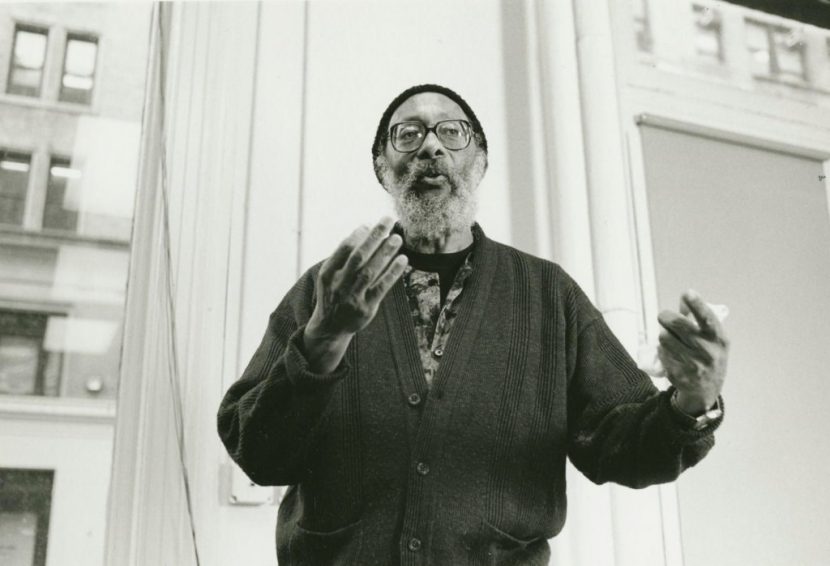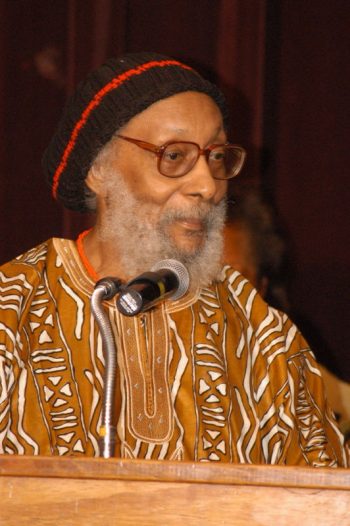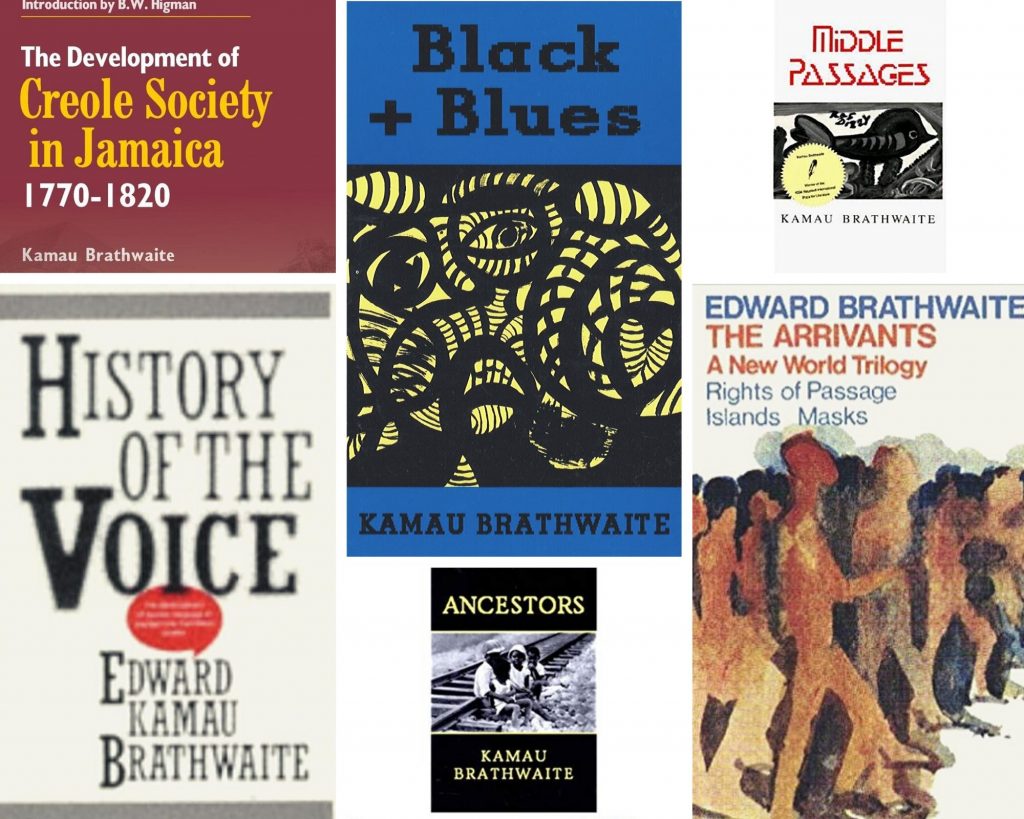In Memoriam: Kamau Brathwaite
Categories: Obituaries

Photo Credit: New York University Archive
The Project on the History of Black Writing mourns the passing of Kamau Brathwaite. The Barbadian poet and academic was 89 when he died in his home on Tuesday, February 4. Brathwaite’s writing mainly celebrated Caribbean voices and greatly contributed to the Caribbean’s literary landscape. Born in Bridgetown, Bahamas in 1930, Brathwaite’s poems examined African roots in the Caribbean, affirming the Afro-Caribbean identity and amplifying their experiences.
“My poetry has been concerned, for a long time now, with the attempt to reconstruct, in verse, in metric and in rhythms, the nature of the culture of the people of the Caribbean.”
In the 1950’s and 1960’s, Brathwaite spent his time teaching and studying in the United Kingdom, Jamaica and Ghana, which informed his writings on the diasporic experiences of Black people. His most popular work The Arrivants: A Third World Trilogy (1973) adds a poetic layer to the history of Black people’s global experiences. His other works include, but aren’t limited to: Folk Culture of the Slaves in Jamaica (1970), Afternoon of the Status Crow (1982) and History of the Voice: The Development of Nation Language in Anglophone Caribbean Poetry (1984), which made him the authority on nation language.
Remembrances:

Photo Credit: House of Nehisi Publishers
“Brathwaite was much more concerned about understanding and highlighting native languages of African peoples as unique and sovereign expressions as a way to present African peoples as unique and sovereign beings rather than trying to convince white readers how much like white people black people can be. While taking that class on Caribbean poetry, I sent the paper that I wrote analyzing his work to him, just as my way of thanking him for influencing me. To my surprise, Brathwaite sent me a brief note, stating, “thank you for sharing your paper with me. I hope you received the A that you deserved.’”- C. Liegh McInnis, February 16, 2020
“To me, he was a big brother, distant in location but always warm when we were in each other’s presence. Kamau was personally introduced to me by my “homie”, big brother Tom Dent. The closer I became to Kamau, the more I admired him, learned from him, was amazed by him as a writer, a scholar, and a friend.”- Kalamu ya Salaam, February 6, 2020
In His Own Words [from Kalamu ya Salaam interview:]
On his audience:
“I start off with a Caribbean audience which is representative of the people who have been down-pressed. The audience is usually a mixed audience, moving in terms of class from college educated to middle class right up to the laboring class because that is how our society is composed.”
On celebrating Caribbean culture in his poetry:
“This involves not only discovering what I would call “new poetic forms” — a breakaway from the English pentameter — but also, and more importantly, discovering the nature of our folk culture, the myths, the legends, the speech rhythms, the way we express ourselves in words, the way we express ourselves in song. That has been my concern for about ten years and is increasingly so. One has to develop technical resources of a very complex nature and at the same time one has to get an increasing knowledge of who our people are, where they come from and the nature of their soul.”
On mystification in religion:
“It is not mystification at all, that’s the thing about it. The religion is so natural, it is so vital, it is so socially oriented, so people oriented that there is no mysticism — mental mystification — in it at all. That is really the difference between an African oriented religion and a European one. Theirs is very mystified because they are not dealing with a living god, they’re not dealing with man in relation to god in relation to community.”

Graphic made by HBW
Obituaries:
“Barbadian poet, who exalted Caribbean’s Afro roots, dies”
“Barbadian poet leaves behind a legacy of language”
“Edward Kamau Brathwaite Obituary”
“Kamau Brathwaite, Poet Who Celebrated Caribbean Culture, Dies at 89”
“Remembering literary legend Kamau Brathwaite”
“My poems start off as rhythms in my head, as patterns of songs which also have an objective. The patterns of songs have to say something, address themselves to some problems or go through some dialectical process. From my head they have to be transferred onto the page, because that’s how I started, but then from the page I instinctively transfer it on to song.”